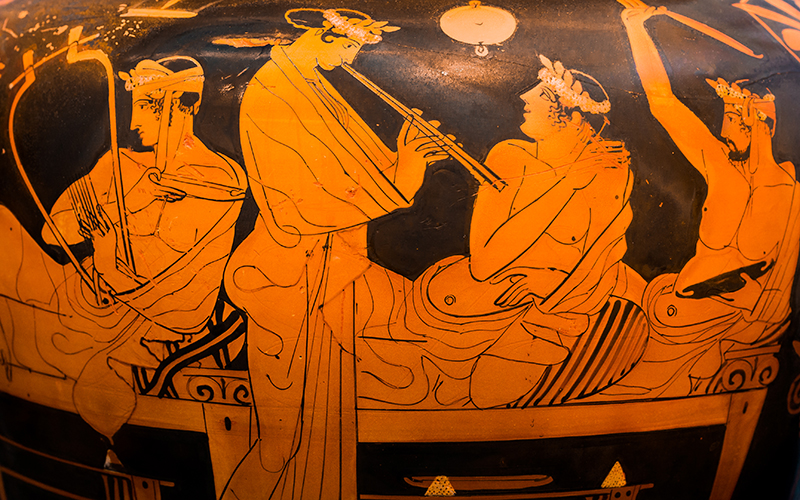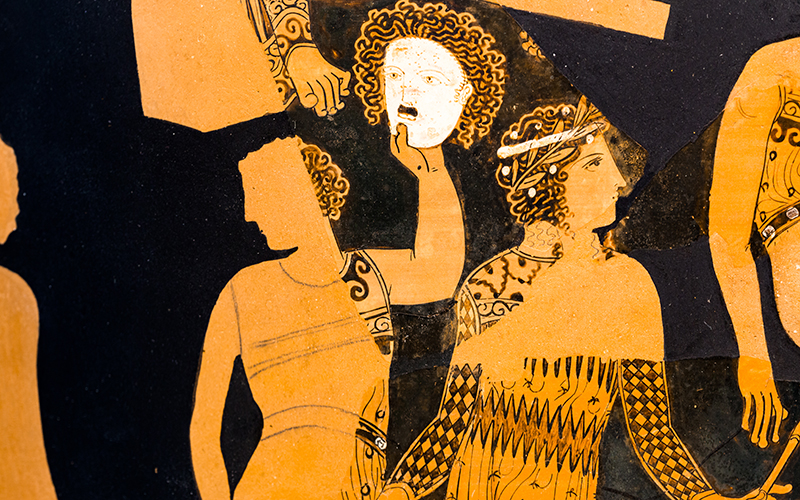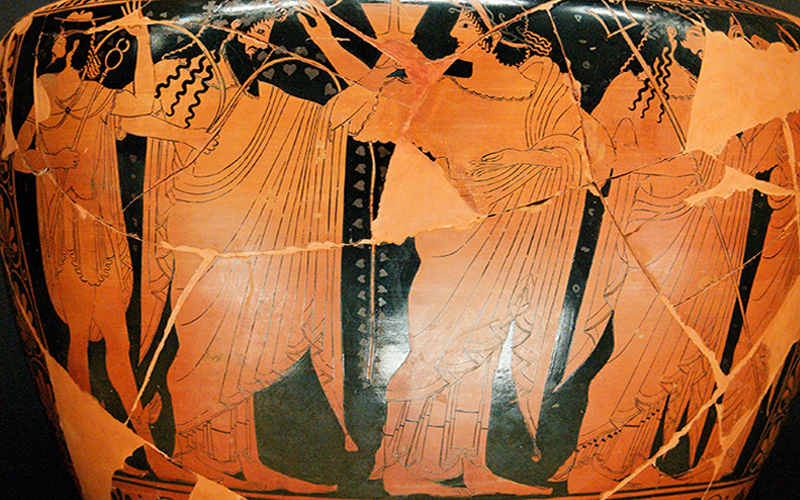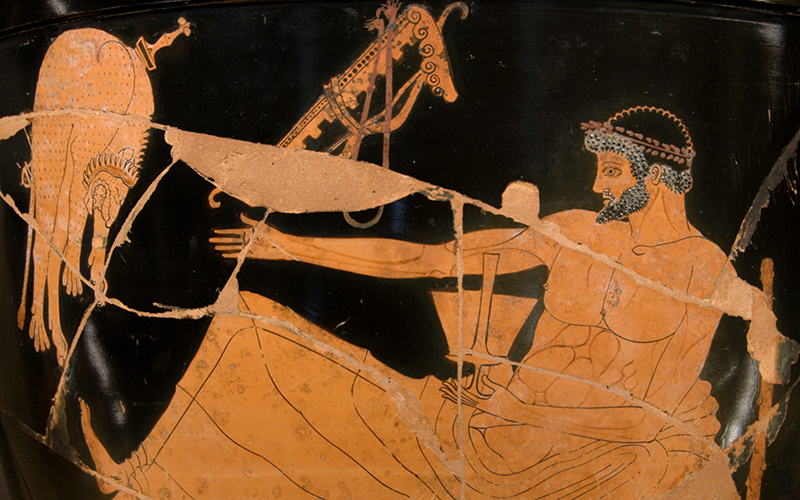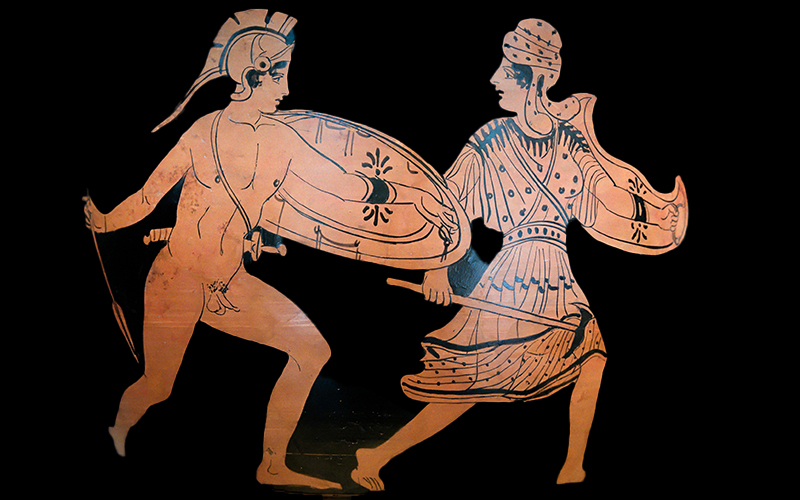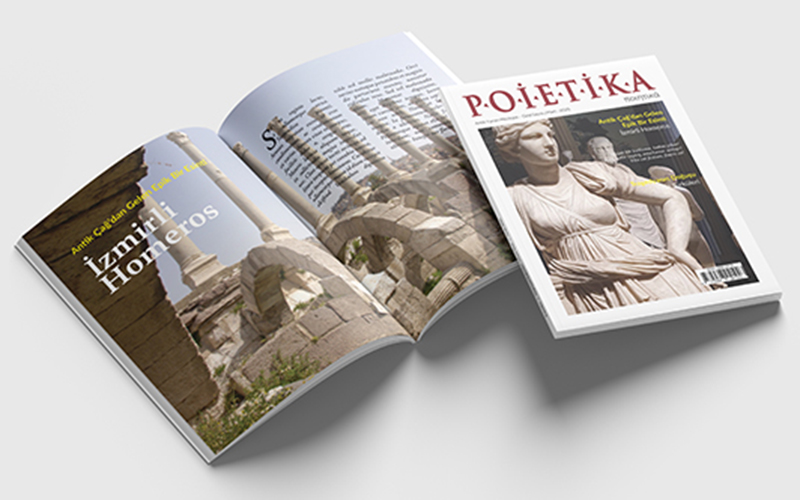
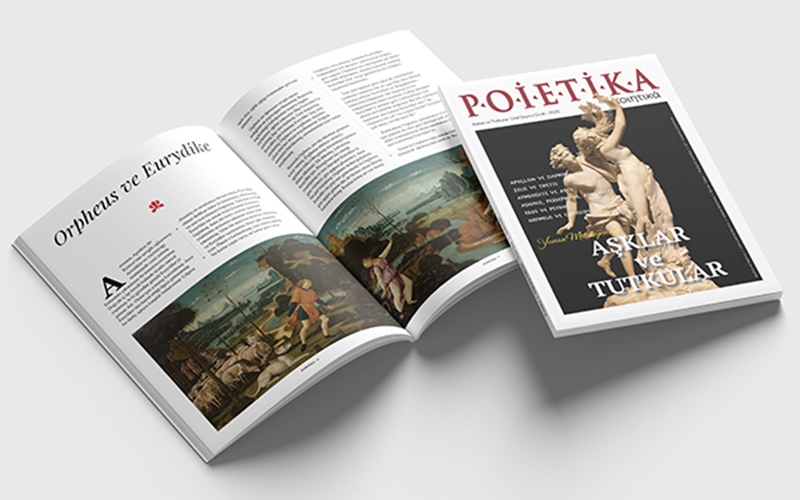



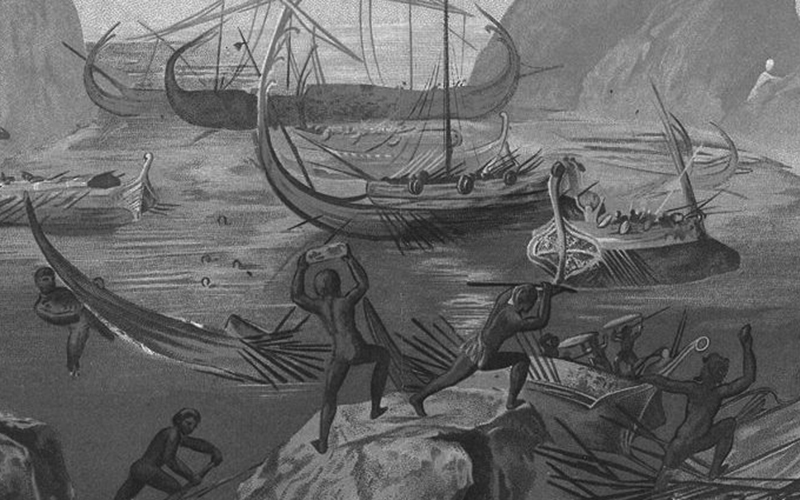
Returning from the Trojan War, the Achaean fleet was scattered by violent storms—each ship cast adrift on its own fate. Among those caught in misfortune was the famed “cunning” Odysseus, whose journey back to Ithaca turned into an epic of survival.
After being separated from the rest of the fleet, Odysseus and his twelve ships landed on the coast of Thrace, in the land of the Cicones. There, at Ismaros, he and his men sacked the city, killing many, but sparing one man: Maron, the priest of Apollo. In gratitude, Maron gifted Odysseus a wine so potent that it would later save his life.
Sailing once more toward home, Odysseus and his crew arrived at an unknown island—later discovered to be the land of the Cyclopes. There, they entered a vast cave that served as a livestock barn, unaware that its owner was the fearsome giant Polyphemus, son of Poseidon.
When Polyphemus returned at dusk and found the strangers inside, he did not offer hospitality. Instead, he trapped them, devoured several of the men, and saved the rest for future meals. Odysseus pleaded for mercy, but the giant remained unmoved:
“He seized two of my comrades, slammed them against the rock like pups, their brains splattering the floor. He ripped them apart and devoured them whole— flesh, bones, entrails and all—like a lion of the wild.”
Facing imminent death, Odysseus devised a plan. He offered Polyphemus the wine from Ismaros, which quickly intoxicated the Cyclops. When asked for his name, Odysseus replied, “Nobody.”
As the giant collapsed in a drunken slumber, Odysseus and his remaining men drove a sharpened, fire-hardened stake into his single eye:
“The eye hissed as the stake burned through the pupil; lids and lashes crisped around it, and the Cyclops howled like a beast of the mountains.”
Blinded and enraged, Polyphemus screamed for help. When the other Cyclopes came asking who had harmed him, he could only answer, “Nobody,” and so they left him to suffer alone.
At dawn, Odysseus instructed his men to tie themselves beneath the bellies of Polyphemus’s sheep. As the blind Cyclops let his flock out to graze, the men escaped clinging to the animals’ undersides.
Thus, thanks to the wisdom of Odysseus and the wine of Ismaros, the crew narrowly avoided destruction at the hands of Poseidon’s monstrous son.
